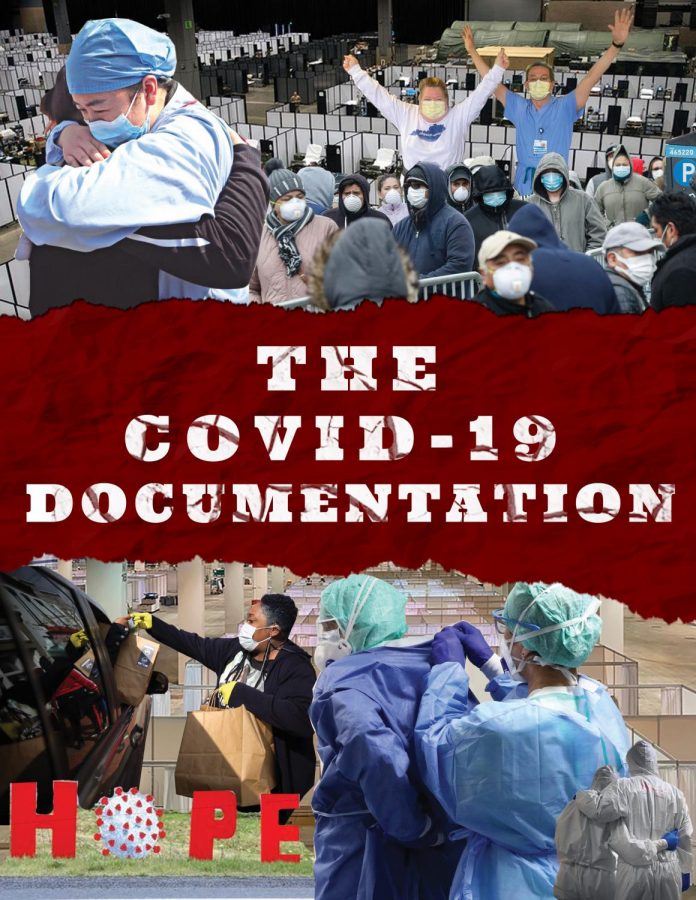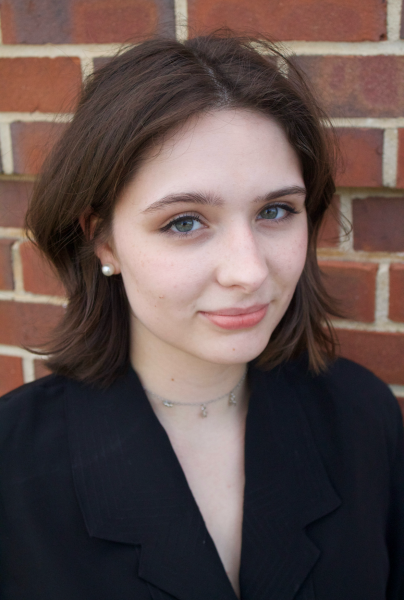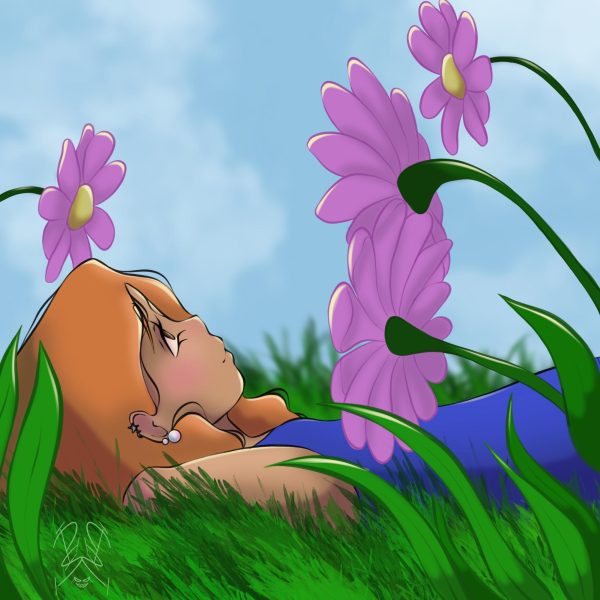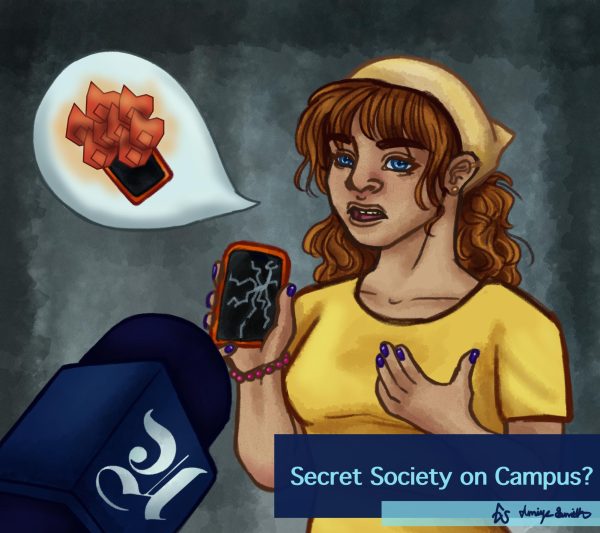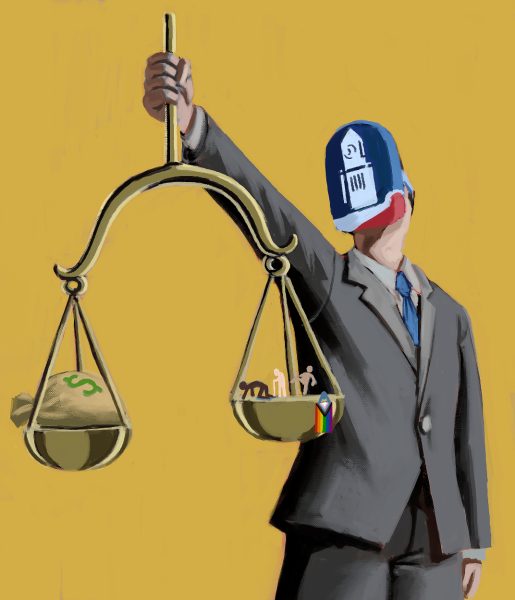Documenting COVID-19: CSU Archives take on a project to preserve this era
Photo collage by Vinh Huynh and Tanasha Coleman.
The Documenting COVID-19 project was started by Professor David Owings, CSU’s archivist, and his assistant, Jessie Merrell. The archive, upstairs in the library, is an expansive collection of primary source material that mainly focuses on the history of Columbus and the Chattahoochee Valley. The archive holds items such as Civil War documents, information on companies like RC Cola and Aflac, as well as resources on the founding and history of Fort Benning and Columbus State University. These records serve as a repository for what life has been like for the people of Columbus for decades.
“It is so important to document and preserve the present times we are living through,” Professor Owings explained.
“As I tell my students in my classes, we as a people aren’t always fully aware that we are living through history as it is happening – that the moment we are living in is something that people are going to be interested in and want to know more about 5, 15, or 50 years — or more! — from now,” commented Professor Ryan Lynch of the History department, who is also helping with the project.
The lives of CSU students hold examples of these history-in-the-making events, the bombing of the twin towers being one of the most obvious. “But of course, the current pandemic is also something that is going to interest future researchers for a long, long time, and those of us who are historians at CSU are very aware of this,” said Lynch. He further explained that we are living in an impactful moment during not just US History, but world history. As historians and archivists, the people who are working on this project understand the importance of documenting as much and as clearly as possible, to help future historians.
This project will help further generations to learn more about “how we reacted to the need to mask, how parks closed, how we lost our jobs, how we ourselves became sick, how our family members died, [and] how the nation experienced these significant racial tensions in the midst of the pandemic.”
“Think about the very moment we are in right now: most of us haven’t been in quarantine for a long while now, but we are still living in an America many months away from a COVID-19 vaccine,” expressed Lynch. “How easily will these experiences and feelings be forgotten once a vaccine is developed?”
The archive’s mission for all times, but especially now, is “to preserve a portion of the past that often ends up forgotten.”
A few weeks ago, Professor Lynch and Professor Owings did a story with WRBL news about the 1919 Influenza Pandemic and how many of the same events that people are experiencing right now with COVID-19 have already been experienced in Columbus over a century ago.
In the article, the professors explain how history repeats itself, and how much we can learn from it.
Because they know what it is like to use their archives to try to learn about the last pandemic that swept through Columbus, what they wanted to learn, and what pieces were missing, the archivists can create a comprehensive and complete documentation for the next archives faculty.
“The blog posts we write about the feelings of our declining mental health in isolation, the first photos we take when we arrive to campus for the the first time in five months, a recording of an act of kindness from a nurse at St. Francis – will help future generations tell the stories of COVID-19,” said Lynch. “Those everyday things that we do – even if we don’t think of them as ‘writing history’ – are exactly how historians write history.”
“Anyone and everyone in Columbus and at Columbus State can contribute to the project, and we want to make sure that it is brought to the attention of our students, staff, and faculty. Our stories and experiences can become a lasting legacy for all of us, and our students have a very important role to play in that, too. Share your experiences with us; tell your story,” he says with his final thoughts.
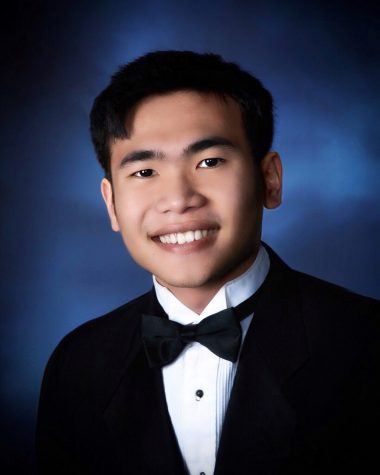
Vinh is a junior Art major. He became the photographer of The Uproar in his first semester at CSU. He enjoys photography and painting. His goal is...



